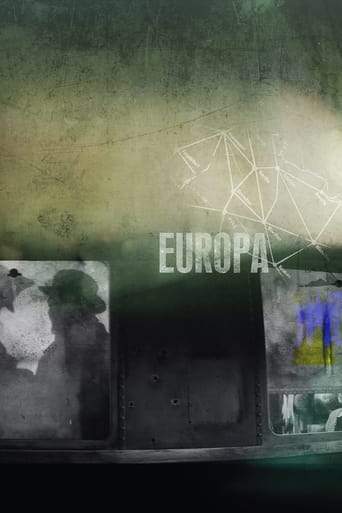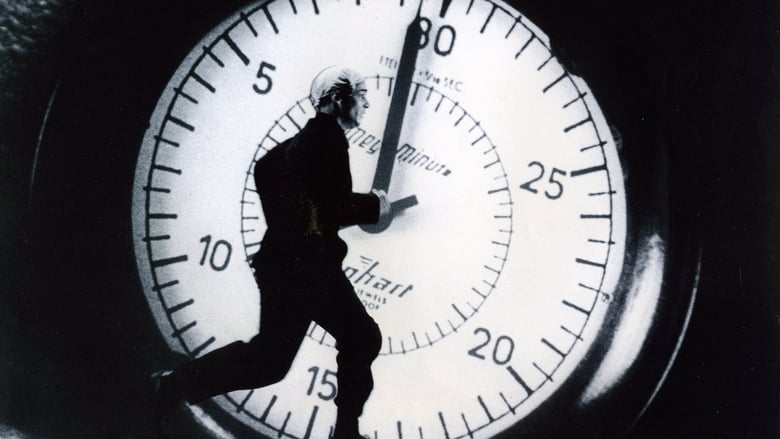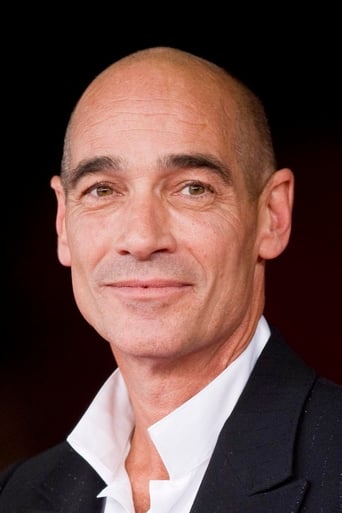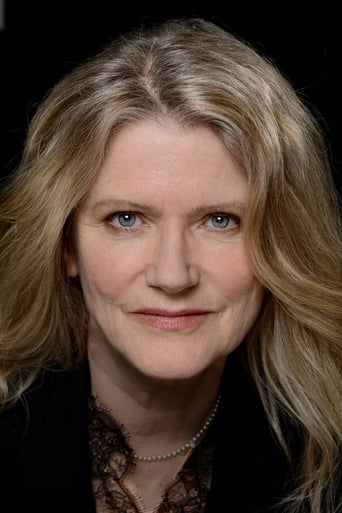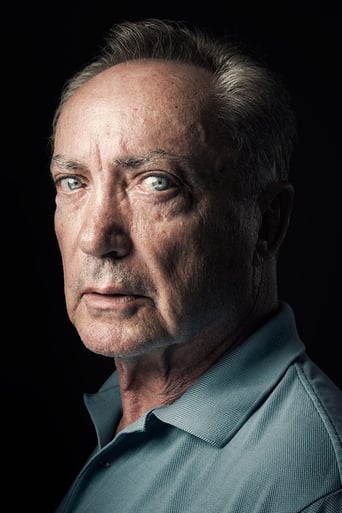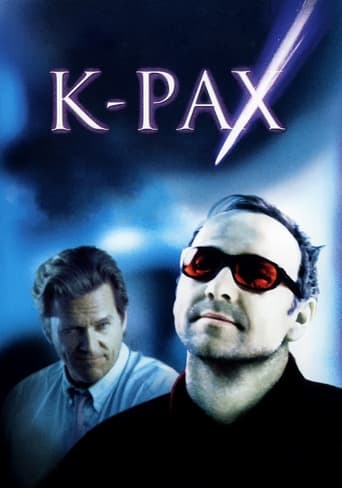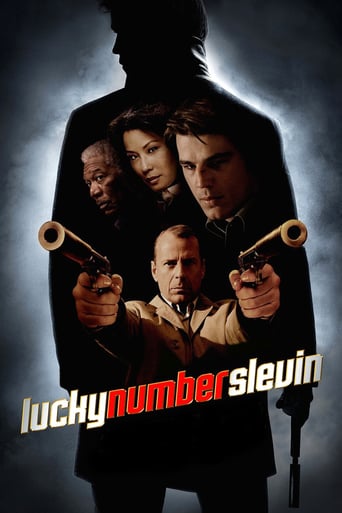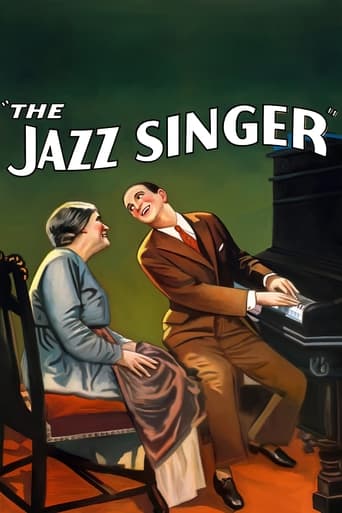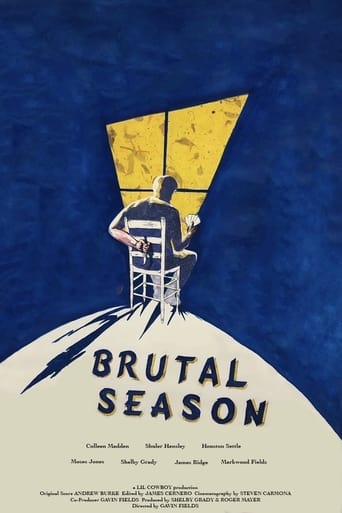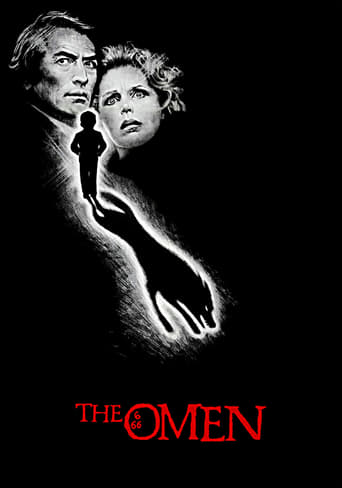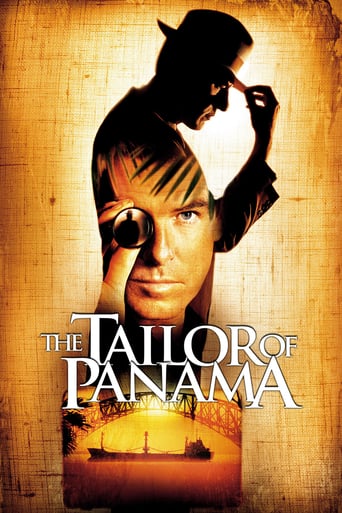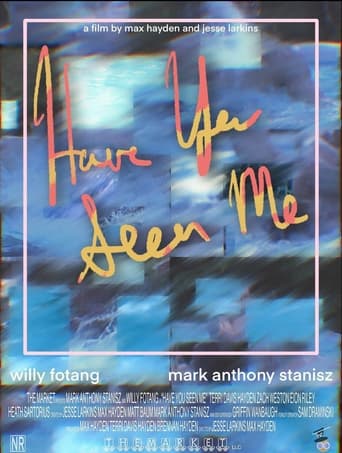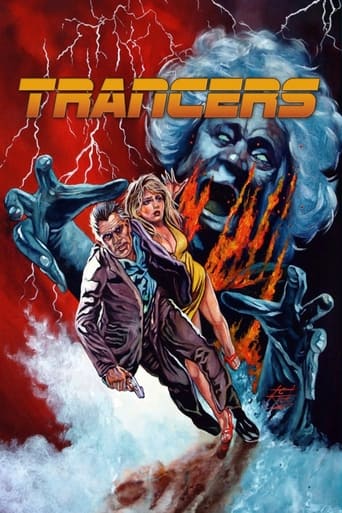Europa (1992)
A young, idealist American gets a job as a train conductor for the Zentropa railway network in postwar, US-occupied Frankfurt. As various people try to take advantage of him, he soon finds his position politically sensitive, and gets caught up in a whirlpool of conspiracies and Nazi sympathisers.
Watch Trailer
Free Trial Channels
Cast


Similar titles
Reviews
An action-packed slog
What a freaking movie. So many twists and turns. Absolutely intense from start to finish.
The film may be flawed, but its message is not.
It is an exhilarating, distressing, funny and profound film, with one of the more memorable film scores in years,
Lars von Trier's portrayal of post-war Germany is an exercise in visual beauty. Think of the infamous Danish "agent provocateur" what you will - his films certainly never fail to leave a lasting impression. This one is perhaps his most accessible effort to date. 8 stars out of 10.In case you're interested in more underrated masterpieces, here's some of my favorites:imdb.com/list/ls070242495
Released as Zentropa in North America to avoid confusion with Agniezska Holland's own Holocaust film Europa Europa, this third theatrical feature by a filmmaker who never ceases to surprise, inspire or downright shock is a bizarre, nostalgic, elaborate film about a naive American in Germany shortly following the end of WWII. The American, named Leo, doesn't fully get what he's doing there. He has come to take part in fixing up the country since, in his mind, it's about time Germany was shown some charity. No matter how that sounds, he is not a Nazi sympathizer or so much as especially pro-German, merely mixed up. His uncle, who works on the railroad, gets Leo a job as a helmsman on a sleeping car, and he is increasingly enmeshed in a vortex of 1945 Germany's horrors and enigmas.This progression starts when Leo, played rather memorably by the calm yet restless actor Jean-Marc Barr, meets a sultry heiress on the train played by Barbara Sukowa, an actress with gentility on the surface but internal vigor. She seduces him and then takes him home to meet her family, which owns the company which manufactures the trains. These were the precise trains that took Jews to their deaths during the war, but now they run a drab day-to-day timetable, and the woman's Uncle Kessler postures as another one of those good Germans who were just doing their jobs. There is also Udo Kier, the tremendous actor who blew me away in Von Trier's shocking second film Epidemic, though here he is mere scenery.Another guest at the house is Eddie Constantine, an actor with a quiet strength, playing a somber American intelligence man. He can confirm that Uncle Kessler was a war criminal, though it is all completely baffling to Leo. Americans have been characterized as gullible rubes out of their element for decades, but little have they been more blithely unconcerned than Leo, who goes back to his job on what gradually looks like his own customized death train.The story is told in a purposely uncoordinated manner by the film's Danish director, Lars Von Trier, whose anchor is in the film's breathtaking editing and cinematography. He shoots in black and white and color, he uses double-exposures, optical effects and trick photography, having actors interact with rear-projected footage, he places his characters inside a richly shaded visceral world so that they sometimes feel like insects, caught between glass for our more precise survey.This Grand Jury Prize-winning surrealist work is allegorical, but maybe in a distinct tone for every viewer. I interpret it as a film about the last legs of Nazism, symbolized by the train, and the ethical accountability of Americans and others who appeared too late to salvage the martyrs of these trains and the camps where they distributed their condemned shiploads. During the time frame of the movie, and the Nazi state, and such significance to the train, are dead, but like decapitated chickens they persist in jolting through their reflexes.The characters, music, dialogue, and plot are deliberately hammy and almost satirically procured from film noir conventions. The most entrancing points in the movie are the entirely cinematographic ones. Two trains halting back and forth, Barr on one and Sukowa on another. An underwater shot of proliferating blood. An uncommonly expressive sequence on what it must be like to drown. And most metaphysically affecting of all, an anesthetic shot of train tracks, as Max von Sydow's voice allures us to hark back to Europe with him, and abandon our personal restraint.
On October of 1945, the American German descendant Leopold Kessler (Jean-Marc Barr) arrives in a post-war Frankfurt and his bitter Uncle Kessler (Ernst-Hugo Järegård) gets a job for him in the Zentropa train line as a sleeping car conductor. While traveling in the train learning his profession, he sees the destructed occupied Germany and meets Katharina Hartmann (Barbara Sukowa), the daughter of the former powerful entrepreneur of transport business and owner of Zentropa, Max Hartmann (Jørgen Reenberg). Leopold stays neutral between the allied forces and the Germans, and becomes aware that there is a terrorist group called "Werewolves" killing the sympathizers of the allied and conducting subversive actions against the allied forces. He falls in love for Katharina, and sooner she discloses that she was a "Werewolf". When Max commits suicide, Leopold is also pressed by the "Werewolves" and need to take a position and a decision."Europa" is an impressive and anguishing Kafkanian story of the great Danish director Lars von Trier. Using an expressionist style that recalls Fritz Lang and alternating a magnificent black & white cinematography with some colored details, this movie discloses a difficult period of Germany and some of the problems this great nation had to face after being defeated in the war. Very impressive the action of the occupation forces destroying resources that could permit a faster reconstruction of a destroyed country, and the corruption with the Jew that should identify Max. Jean-Marc Barr has an stunning performance in the role of man that wants to stay neutral but is manipulated everywhere by everybody. The hypnotic narration of Max Von Sydow is another touch of class in this awarded film. My vote is nine.Title (Brazil): "Europa"
When people ask me if I have a favorite movie, I will look at them seriously and find out what kind of movie nut they are. If they seem a bit clueless, I will say 'Citizen Kane' (which is actually my 2nd favorite movie) but my all time favorite movie is "Zentropa" aka Europa. I saw this first at the Vancouver International Film Festival, and as soon as Max Van Sydow started his haunting narration, I was HOOKED! EVERYTHING about this film I love. From the mentioned narration to the bang on performance of Jean-Marc which he hasn't replicated before (The Big Blue is a big yawn) or since (but I DO love his tiny bit parts in other Von Trier movies) to the gonzo story (An American gets a job as a railway conductor in Germany immediately after the war and gets involved in post-war terrorism groups!) to the LOOK of the film. Black on white on color, phony but amazing process shots). Never boring, quite entertaining. When's this EVER going to be released on DVD?

